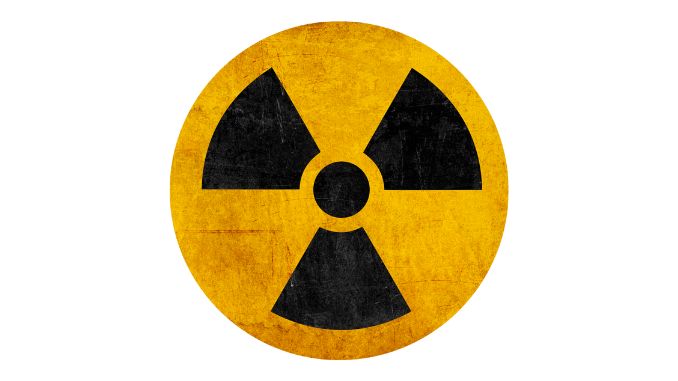Smart plugs are the most basic devices for smart homes. For many people who want to turn their standard home into a smart home, these are the first devices in which they will invest. Though they offer amazing benefits e.g the ability to control your devices remotely, there’s been a rising concern over their potential to emit radiation. Which begs the question: do smart plugs emit radiation?
The short answer is yes, at least going by Amazon. According to the Safety and Compliance Information for Amazon Smart Plug, “Amazon Smart Plug generates, uses, and can radiate radio frequency (RF) energy and, if not used in accordance with its instructions, may cause interference to radio communications and electronic equipment.”
Should Smart Plugs Radiation Be Considered a Health Risk?
Frankly, the overall impact of it on human health is still unclear. To put it into perspective, let me educate you briefly about radiation. That way, you’ll be better able to comprehend this information.
What Is Radiation?

Simply put, it’s the emission of energy (in the form of moving high-energy or low-energy subatomic particles/electromagnetic waves) from any source.
High-Energy Subatomic Particles/Electromagnetic Waves(High-Energy Radiation)
There are various forms of high-energy subatomic particles or electromagnetic waves( high-energy radiation) in the form of rays or UV radiation. These are namely; X-rays, gamma rays, and UV ionizing radiation.
X-rays can originate from different sources including advanced medical gadgets and equipment like X-ray, CT scan, PET scan, and radiation therapy machines. Apart from that, it can also originate from nuclear equipment, facilities & weapons, radioactive elements normally found in soil & rocks, or outer space(where there are plenty of cosmic rays). As for gamma rays, these high-energy electromagnetic waves can come from a range of higher-energy sources. These include nuclear explosions, lightning, and radioactive decay activity. On top of that, they can also be emitted by the hottest and most energetic objects in the universe e.g regions around black holes, supernova explosions, as well as neutron stars and pulsars.
When it comes to UV ionizing radiation, a lot of objects are linked to this energy. These include some incandescent, fluorescent, and halogen lights and certain types of laser machines. This high-energy radiation can also be emitted by mercury vapor lighting(normally found in gyms and stadiums), tanning beds (those that people lie in while being exposed to bright light to darken their skin), and the sun.
Notably, this high energy from X-rays, gamma-rays, and UV ionizing radiation causes ionization, which, in turn, can damage your DNA, leading to an increased risk of cancer.
Low-Energy Subatomic Particles/Electromagnetic Waves(Low-Energy Radiation)
Low energy radiation, on the other hand, is always referred to as radio frequency(RF) radiation. According to the American Cancer Society, RF radiation is a non-ionizing radiation that exists in various forms including radio waves and microwaves. These waves can be emitted by many gadgets that we use on a day-to-day basis e.g smart plugs, cellphones, microwaves, body security scanners, local wireless networks(e.g Wi-Fi), etc.
Coming back to the answer regarding whether or not the radiation emitted by smart plugs should be considered a health risk, there’s no official position or statement from experts currently as we speak.
The American Cancer Society (ACS) doesn’t have an official position on this matter. Remember that the ACS is a trustworthy body that relies on the International Agency for Research on Cancer (IARC)’s, the US National Toxicology Program (NTP)’s and other reputable organizations’ expert knowledge and advice.
However, Amazon suggests that there could be a slight health risk, depending on how your smart plug(s) is (are) installed, and also on how adequately your gadgets are shielded from their RF signals.
Its Safety and Compliance Information for Amazon Smart Plug page reads, “…..External RF signals may affect improperly installed or inadequately shielded electronic operating systems, entertainment systems, and personal medical devices…..”
You shouldn’t worry too much about your devices’, gadgets’, and appliances’ shielding though since most modern electronic equipment is shielded from external RF signals. Just to be on the safe side though, you can check with your manufacturer. If you use personal medical devices (e.g hearing aids and pacemakers), it’s also imperative that you consult further with your physician to find out if they are adequately shielded from external RF signals.
That means if you are using a poor-quality medical device or gadget that is not properly shielded against the RF signals emitted by smart plugs, it could put your health in a perilous hazard.
Measures You Can Take To Limit Your Exposure To Smart Plugs Radiation
Taking a few measures can help reduce your exposure to radiation emitted by your smart plug(s), whose overall impact on human beings’ health is still not clear.
- Limit the time you spend near your smart plug(s). The same applies to your other devices(including your personal medical ones, if applicable), appliances, and equipment(such as your Wi-Fi routers) that give off RF radiation.
- Plug your smart plug(s) into the socket(s) located at the furthest end of the room.
- Invest in effective RF radiation protection devices. There are plenty of them on Amazon that work as advertised. You can also look for one in your nearest electronics store.
Final Thoughts
Smart plugs continue to gain popularity as the most basic smart home devices. After all, many people who start their smart home journey first begin by investing in them. While these portable and practical devices offer amazing benefits including energy savings and convenience, concerns that they emit radiation continue to grow. This begs the question; do smart plugs emit radiation? Amazon has indicated on its Safety and Compliance Information for Amazon Smart Plug page that indeed they do. Though it’s unclear as to whether or not this form of radiation can have a severe impact on our overall health, we should limit our exposure to it. We can do that by following the three simple tips above.